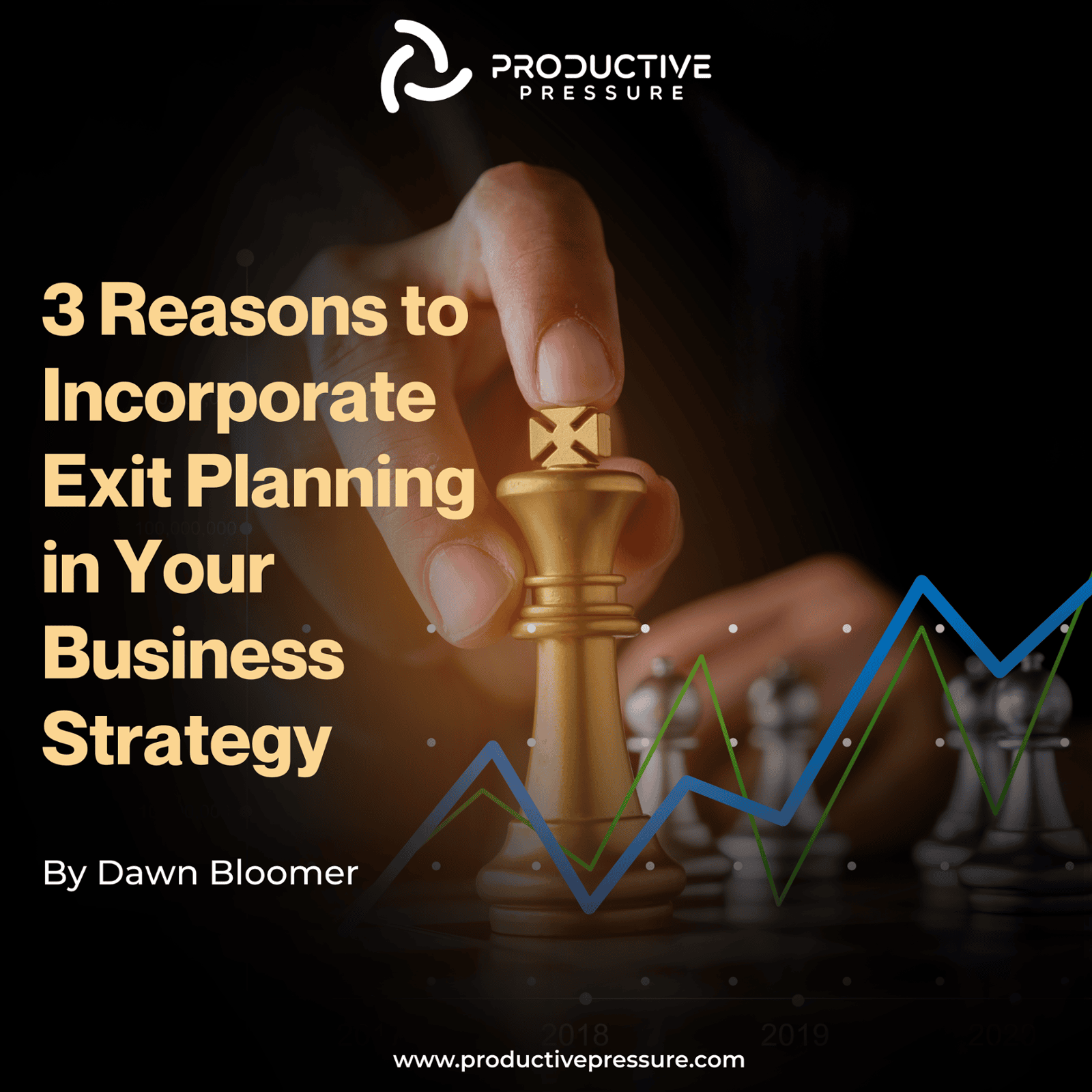
At Productive Pressure, we recommend that business owners always begin with the end in mind, then reverse engineer their plan. The “end in mind” for many owners is a business that runs well, makes lots of money, and doesn’t take all their time and energy. What many owners don’t consider (but should) is their eventual exit. Here’s why.
1. You WILL exit your business one day

There are 2 ways to exit - either voluntarily or involuntarily. A voluntary exit could look like one of these:
- Sell the business and cash out, moving onto your next adventure with a pile of cash in the bank.
- Reduce your involvement to part time or advisory only and continue to get paid.
- Retire and let the business run itself, generating income for you through profits and dividends.
An involuntary exit happens due to one of the 5 Ds
- Divorce
- Disagreement
- Disability
- Distress
- Death
I’ve had personal experience with the first 4 Ds – and none of them are fun. By incorporating exit planning into your strategic plan, you manage risk for the 5 Ds and create some nice options for yourself down the road.
2. Your business probably isn’t worth as much as you think it is
Practice owners typically have 70% to 90% of their wealth tied up in their business. Most financial planners put the value of your business into your net worth calculation. This gives the (mostly false) impression that the business will one day sell for that number. My business was always part of my financial plan, and every year I looked at that big number somewhat skeptically. The skepticism was warranted. Most financial planners don’t have a feel for whether or not a business is saleable. (My business wasn’t saleable until I made some changes.) This means that you could be basing all your financial decisions on bad numbers. It also ignores this reality: over 70% of businesses that are put on the market do not sell. And of the ones that do sell, many sell for less than the asking price. This is why smart business owners focus on building value (what their business could sell for) rather than revenue. Even if you love running your business and don’t plan to retire, you’re still wise to build your strategy around exiting because of the perspective it brings. In other words…
3. A business you could sell is a business you’d want to keep
What do buyers look for when considering a business to purchase?
- A business that is profitable and makes good money.
- A business that doesn’t require the owner’s day-to-day involvement. The owner is not a key part of revenue generation (being the sales rainmaker) or the person with all the answers or the person who interacts directly with their customers.
- A business with a strong team and good systems in place.
This kind of business can make you a lot of money – without taking up all your TIME. Even if you choose to stay closely involved in the business, you won't feel trapped in Owner Overload. Who wouldn’t want that?
